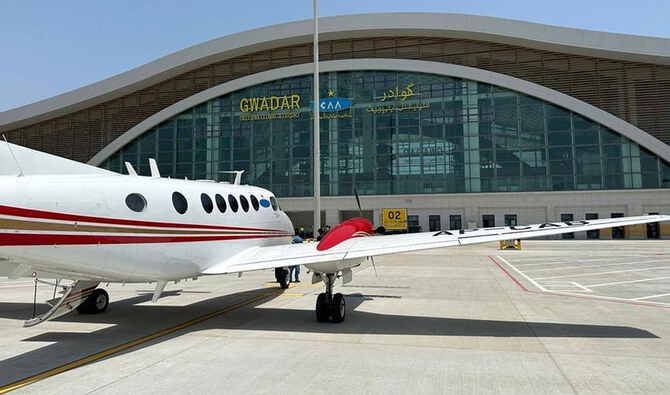ISLAMABAD: Pakistan will inaugurate a China-funded airport in its southwestern Balochistan province “very soon,” the Balochistan chief minister said on Monday, denying reports of a delay in its opening over security fears.
The $250 million New Gwadar International Airport (NGIA), which lies close to a port at the center of the $50 billion China-Pakistan Economic Corridor (CPEC), was due to be inaugurated on August 14.
But the planned opening on Pakistan’s Independence Day was halted reportedly over security concerns after widespread protests by rights groups brought the southwestern Gwadar city to a standstill this month.
Speaking at a press conference Monday night, Balochistan CM Sarfraz Bugti denied reports of the postponement of the airport’s opening due to security concerns and said it was facing some “operational issues.”
“Absolutely, it is not like that. There are operational issues,” he told a reporter, when asked about the delay. “It is now close to completion. A test flight has been conducted and the prime minister will visit very soon and inaugurate it.”
The statement came hours after militants choked key highways as they launched coordinated attacks in several districts across the southwestern Pakistani province, killing 53 people.
Balochistan, which borders Iran and Afghanistan, has been the site of a decades-long separatist insurgency by ethnic Baloch militants, who say they are fighting what they see as the unfair exploitation of the province’s wealth by the federation. The Pakistani state denies the allegations.
Beijing has pledged over $60 billion for infrastructure projects in Pakistan under the CPEC framework which is central to its initiative to rebuild a new “Silk Road” through land routes and sea lanes to connect with markets in the Middle East, Africa and Europe.
But the undertaking has been hit by Pakistan struggling to keep up its financial obligations as well as militant attacks on Chinese nationals in Pakistan.
In recent months, China has publicly raised with Pakistan the issue of the security of its workers and interests, especially since a March suicide attack in which five Chinese workers and their local driver were killed in Pakistan’s northwest.
















